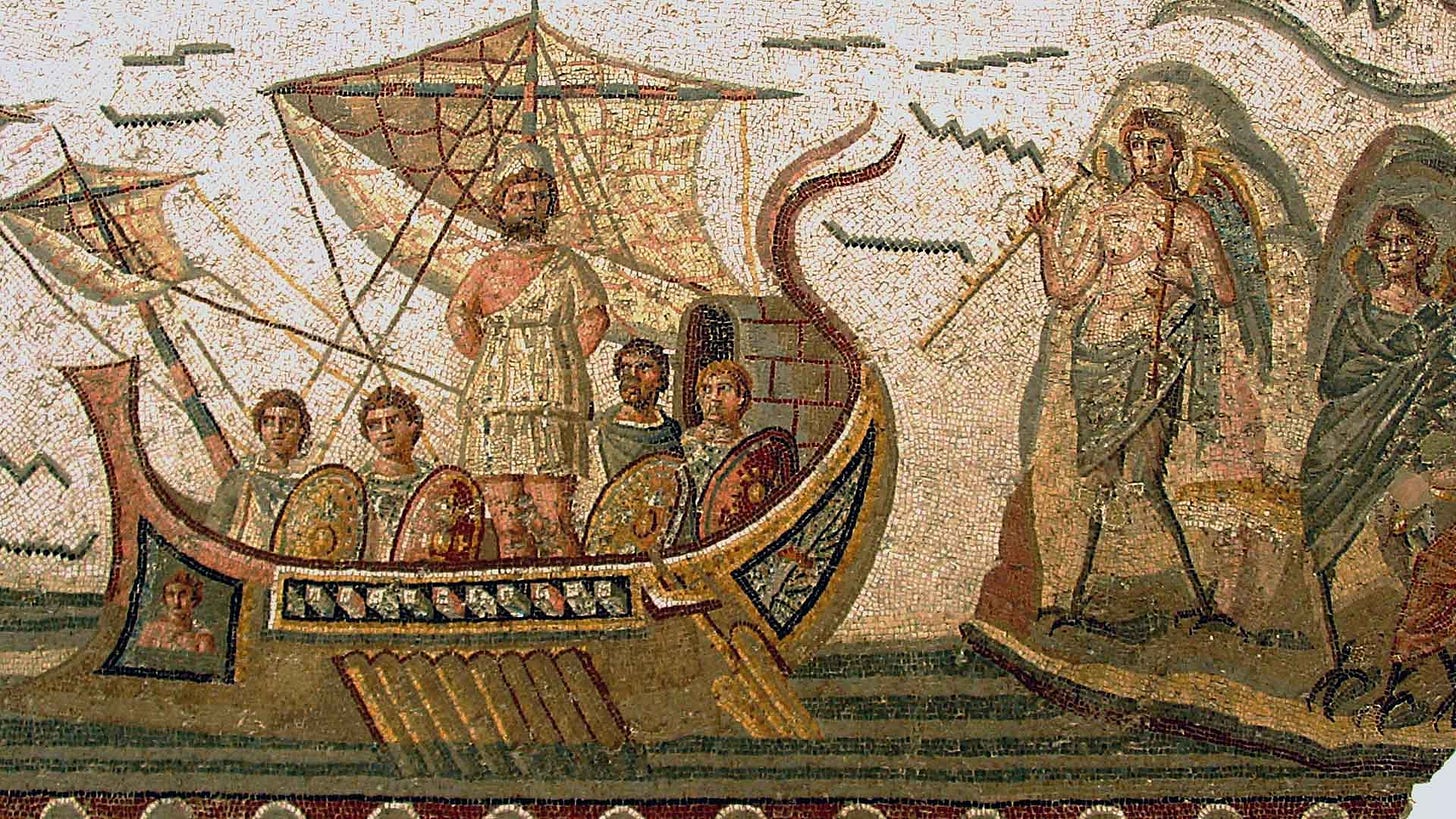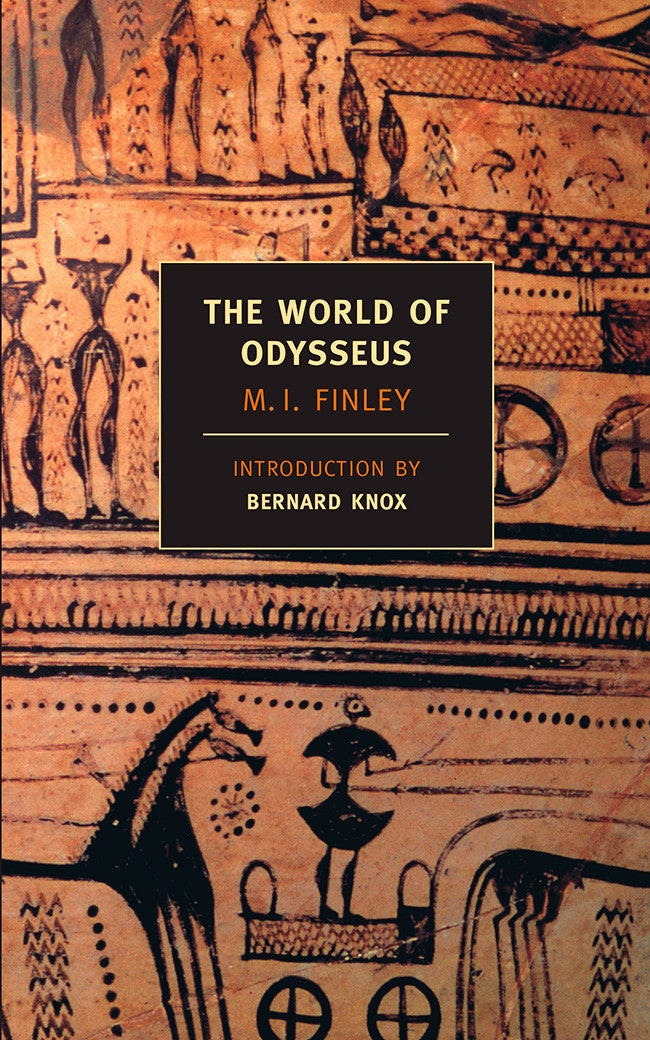Featured Episode - The Odyssey: How Much of it is Fact?
Issue 28
In This Episode
How much of Homer’s epic tale, the Odyssey, preserves historical fact? Join Petros Koutoupis as he digs deep into the Telemachy (the first four books of the Odyssey) in an attempt to determine how much of the poem preserve Late Bronze Age events. We will discuss ancient Aegean traditions to even the Sea Peoples.
You can listen to this episode on:
Glossary
Anatolia - The region that is Turkey today.
Apollodorus - Technically, “pseudo-Apollodorus” (1st or 2nd century CE) who authored of the Bibliotheca.
Atreus - A king of Mycenae in the Greek Peloponnese and father of both Agamemnon and Menelaus.
BCE - Before the Common Era, the equivalent of B.C.
Bronze Age - Defines a historic period dated to approximately between 3300 BCE and 1200 BC. It is characterized by the use of bronze, the presence of writing in some areas, and other early features of urban civilization.
Canaan - The region that is the Levant and what is Israel and Syria today.
CE - The Common Era, the equivalent of A.D.
CTH - Catalogue of Hittite Texts.
Cuneiform - A wedge-shaped logo-syllabic script used to write several languages of the Ancient Middle East.
Cyclades - A collection of islands (which form a circle) located in the Aegean Sea and to the East of the Peloponnese.
Epic Cycle - See the Trojan Cycle.
Hesiod - An ancient Greek poet believed to have been active between 750 and 650 BCE.
Hittite - An ancient civilization and empire that controlled most of the Anatolian mainland.
Late Bronze Age - A historical period defining the end of the Bronze Age in the Eastern Mediterranean that began at c. 1500 BCE and ended c. 1200 BCE.
Levant - The general geographical region of the Eastern Mediterranean and Western Asia, more centralized around modern-day Israel, Syria, Lebanon and Jordan.
Linear B - An adaptation from the Minoan Linear A, it is made up of hundreds of signs that represent syllabic, ideographic and semantic values that represent an ancient dialect of the Greek language.
Merneptah - The fourth Egyptian Pharaoh of the 19th Dynasty. Reigned from approximately 1213 - 1203 BCE.
Mycenaean - A phase or period of the Bronze Age Greece, spanning from approximately 1600-1100 BCE.
Nostoi - Also known as the Returns, is a fragmentary narrative making up part the Trojan Cycle recounting the events of the Greek heroes returning home from the Trojan War.
Plutarch - (46 - 119 CE) A Greek philosopher, historian, biographer and priest at the Temple of Apollo in Delphi.
Ramesses III - The second Egyptian Pharaoh of the 20th Dynasty. Reigned from approximately 1186 - 1155 BCE.
Sea Peoples - A confederation of seafarers that migrated East toward Anatolia, the Levant and Egypt during the end of the Late Bronze Age, some of which pillaged and plundered whole cities along the way.
Telegony - An epic poem and part of the Trojan Cycle, featuring Telegonus, the youngest son of Circe and Odysseus.
Telemachy - The first four books of the Odyssey.
Thucydides - (c. 460 – c. 400 BCE) An Athenian historian and general.
Trojan Cycle - A collection of Ancient Greek epic poems, composed in dactylic hexameter and related to the story of the Trojan War.
Recommended Books
1177 B.C.: The Year Civilization Collapsed: Revised and Updated
by Dr. Eric H Cline
In 1177 B.C., marauding groups known only as the "Sea Peoples" invaded Egypt. The pharaoh's army and navy managed to defeat them, but the victory so weakened Egypt that it soon slid into decline, as did most of the surrounding civilizations. After centuries of brilliance, the civilized world of the Bronze Age came to an abrupt and cataclysmic end. Kingdoms fell like dominoes over the course of just a few decades. No more Minoans or Mycenaeans. No more Trojans, Hittites, or Babylonians. The thriving economy and cultures of the late second millennium B.C., which had stretched from Greece to Egypt and Mesopotamia, suddenly ceased to exist, along with writing systems, technology, and monumental architecture. But the Sea Peoples alone could not have caused such widespread breakdown. How did it happen?
In this major new account of the causes of this "First Dark Ages," Eric Cline tells the gripping story of how the end was brought about by multiple interconnected failures, ranging from invasion and revolt to earthquakes, drought, and the cutting of international trade routes. Bringing to life the vibrant multicultural world of these great civilizations, he draws a sweeping panorama of the empires and globalized peoples of the Late Bronze Age and shows that it was their very interdependence that hastened their dramatic collapse and ushered in a dark age that lasted centuries.
A compelling combination of narrative and the latest scholarship, 1177 B.C. sheds new light on the complex ties that gave rise to, and ultimately destroyed, the flourishing civilizations of the Late Bronze Age―and that set the stage for the emergence of classical Greece.
The World of Odysseus
by M.I. Finley
The World of Odysseus is a concise and penetrating account of the society that gave birth to the Iliad and the Odyssey--a book that provides a vivid picture of the Greek Dark Ages, its men and women, works and days, morals and values. Long celebrated as a pathbreaking achievement in the social history of the ancient world, M.I. Finley's brilliant study remains, as classicist Bernard Knox notes in his introduction to this new edition, "as indispensable to the professional as it is accessible to the general reader"--a fundamental companion for students of Homer and Homeric Greece.







This was a really good episode. Wish it had been a bit longer. 😊